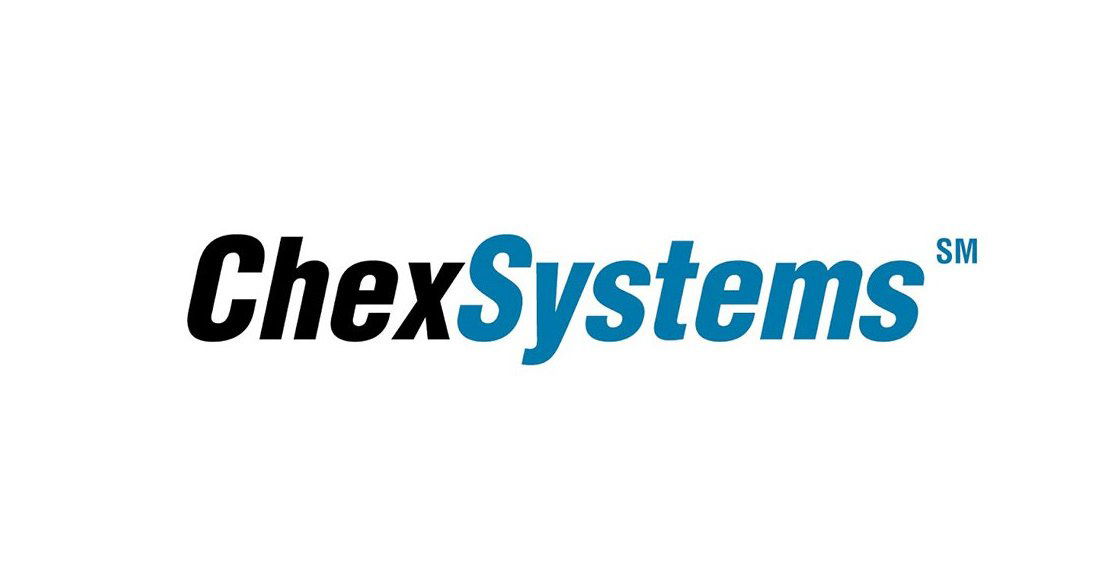Getting denied for a bank account might feel like a setback, but it’s a common issue with practical solutions. Many people find themselves in this position due to past banking mistakes, insufficient documentation, or other factors. The good news? There are clear steps you can take to address this and open a bank account successfully.

This guide breaks down exactly what you need to do, from understanding the reasons for your denial to exploring alternative banking options. With a few proactive steps, you can get back on track and find an account that meets your needs.
Key Takeaways
- Being denied a bank account often results from poor banking history with agencies like ChexSystems, insufficient identification, or unpaid fees, but it’s not the end of the road.
- Immediate steps after denial include requesting your ChexSystems report, disputing errors, and settling legitimate debts while also considering alternative options like non-ChexSystems banks or second-chance accounts.
- Gradually improving your banking history through regular deposits, careful balance management, and responsible financial habits can help rebuild your profile and open doors to better banking opportunities.
The Importance of Having a Bank Account
A bank account does more than just hold your money. It makes everyday financial tasks easier, like getting direct deposits from employers and paying bills. Many financial services, such as loans, also require an account. Without one, managing money can become harder and more costly, often leading to reliance on pricey options like check-cashing services or money orders.
Common Reasons for Being Denied a Bank Account
Banks may deny an application for several reasons, usually related to past banking activity or identity verification issues. Here are the most common factors:
- Negative banking history: Banks often review ChexSystems, which tracks your banking activity, including unpaid overdraft fees, frequent bounced checks, or account closures due to negative balances. Any of these issues can signal to banks that you’re a higher-risk applicant.
- Poor credit history: Some banks also consider your credit history, especially if you’re applying for an account with additional features like overdraft protection. While less common, missed payments and low credit scores can sometimes impact account approval.
- Insufficient identification: Federal laws require banks to verify your identity, so if your ID doesn’t meet their requirements, your application may be denied. This step helps prevent fraud and ensure the security of financial institutions.
By identifying the specific reason behind a denial, you can take steps to address it and improve your chances when applying for an account in the future.
The Role of ChexSystems in Banking Decisions
ChexSystems is a reporting agency that tracks consumers’ banking activities, much like a credit bureau monitors credit history. Banks use ChexSystems reports to review an applicant’s past banking behavior, which might include records of unpaid overdraft fees, account closures, bounced checks, and suspected fraudulent activities. These details help banks assess whether a potential customer poses a risk.
If your ChexSystems report has negative marks, it may label you as a high-risk applicant, which could impact your chances of opening a standard checking or savings account. Each bank has its criteria, though, and some may be more flexible with applicants who have less-than-perfect banking records.
Immediate Steps to Take After Denial
If your bank account application is denied, taking action right away can help address the issues. Here are practical steps to move forward:
Request and Review Your ChexSystems Report
After a denial, you’re entitled to a free copy of your ChexSystems report, which you can request through the ChexSystems website, by phone, or by mail. The process is straightforward and only requires basic personal information for verification. This report will reveal any negative entries that might have led to the denial.
Examine the Report’s Details
When you receive your ChexSystems report, go through it carefully. The report will list any past banking issues from the past five years, such as unpaid fees, overdrafts, or closed accounts. Identifying the specific entries that might have caused your denial is the first step toward addressing them.
Dispute Errors in Your Report
Errors in ChexSystems reports aren’t uncommon, so it’s essential to check for inaccuracies. Look for mistakes in personal information, duplicated entries, or transactions that you don’t recognize.
If you spot an error, file a dispute directly with ChexSystems. You can submit disputes online, by mail, or via fax, providing relevant details and supporting documents. ChexSystems has 30 days to investigate and will update the report if your claim is valid.
How to Address Legitimate Negative Records
If your ChexSystems report includes valid negative entries, resolving these issues can improve your standing with future banking applications. Addressing outstanding debts and maintaining good habits with current accounts can demonstrate responsible financial behavior.
Settle Unpaid Fees or Debts
Begin by paying any unresolved debts or fees listed on your report. Contact the relevant banks to discuss payment arrangements if necessary. Clearing these debts doesn’t erase the history, but it updates your record to show they’ve been resolved, which can make you a stronger applicant.
Create a Plan to Build Positive Banking History
After handling outstanding issues, focus on maintaining a positive record. Keep all current accounts in good standing by avoiding overdrafts, promptly paying any fees, and ensuring your balance stays positive. Over time, these practices can improve your banking profile and boost your eligibility for new accounts.
Alternative Banking Solutions
When traditional bank accounts are out of reach, alternative banking solutions can bridge the gap. These three options provide a way to manage your finances effectively while you work on resolving the issues that led to your bank account denial.
1. Banks that Don’t Use ChexSystems
Some banks choose not to use ChexSystems, or they use it with other factors, offering a chance to those with a troubled banking history. These banks typically focus more on your current financial situation rather than past missteps.
When you apply for an account at a non-ChexSystems bank, be prepared to provide proof of steady income or financial stability, as they may scrutinize these aspects more closely. It’s important to read the terms and conditions of the account to understand any fees, limitations, or requirements.
2. Second-Chance Bank Accounts
Second-chance bank accounts are designed for individuals with a less-than-perfect banking history. These accounts often come with basic banking features like a debit card and the ability to write checks or pay bills online. However, they may have limitations such as lower transaction limits, higher fees, or no overdraft protection.
Many banks and credit unions offer second-chance accounts. Research online or visit local branches to find out what’s available. When applying, be upfront about your banking history and demonstrate your commitment to responsible financial management. These accounts can be a stepping stone to standard accounts once you’ve established a positive banking record.
See also: Best Second Chance Checking Accounts
3. Prepaid Debit Cards
Prepaid debit cards allow you to load money onto the card and use it for purchases, bill payments, and ATM withdrawals, similar to a traditional debit card. However, they don’t require a bank account and don’t typically involve a credit check.
Prepaid cards are easily accessible and can be a good tool for budgeting, as you can only spend what’s loaded on the card. However, they often come with fees for activation, reloading, and transactions. Additionally, they don’t help in building credit history or offer the same level of consumer protection as bank accounts.
How to Build a Positive Banking Relationship
Creating a strong banking relationship supports financial stability and opens future opportunities. Whether you’re working with a second-chance account, a non-ChexSystems bank, or have cleared inaccuracies from your report, responsible account management plays a crucial role.
Take Charge of Account Management
Avoiding overdrafts is essential for maintaining a good account record. Overdrafts happen when spending exceeds your account balance, which can lead to fees and negative marks. To avoid this, keep a financial buffer, opt out of overdraft protection to prevent transactions from pushing your balance negative, and monitor your spending closely.
Track Balances and Transactions Regularly
Regularly checking your account balance and reviewing transactions keeps you informed. Online banking and mobile apps make this easy, helping you spot unauthorized transactions and stay aware of your financial status. Setting up alerts for low balances or large transactions also adds an extra layer of control.
Make Regular Deposits
Making regular deposits into your account demonstrates financial stability. It doesn’t have to be large amounts; consistent deposits from employment, other income sources, or even small transfers from other accounts show a steady use of the banking system.
Avoid Negative Balances
Always aim to keep your account in the positive. This means managing your funds to ensure that expenses do not exceed your available balance. Consider using budgeting tools or apps to plan your expenses and avoid the risk of dipping into negative territory.
Building a positive banking relationship through these practices will help in maintaining your current account and pave the way for future financial opportunities. Banks look favorably upon customers who demonstrate responsible financial behavior, potentially opening doors to more beneficial banking products and services in the future.
Conclusion
Getting back on track after being denied a bank account can be challenging, but it’s an opportunity for growth and learning in your financial journey. The key is to approach this situation with a proactive and positive mindset. By understanding the reasons behind the denial, addressing any issues, and exploring alternative banking options, you’re already taking significant steps towards a more stable financial future.
Remember, setbacks like this are not permanent. They’re merely hurdles on the road to financial success. With perseverance, dedication to responsible financial management, and a commitment to improving your banking history, you’ll overcome these challenges and build a stronger, more resilient financial profile.
Your financial journey is unique, and every step, no matter how small, moves you closer to your goals. Stay informed, stay focused, and above all, stay positive. The path to financial stability and access to traditional banking is within reach, and with each responsible decision, you’re paving the way to a brighter financial future.



